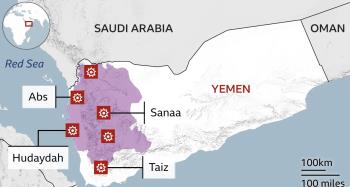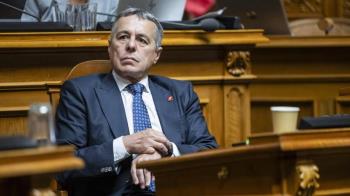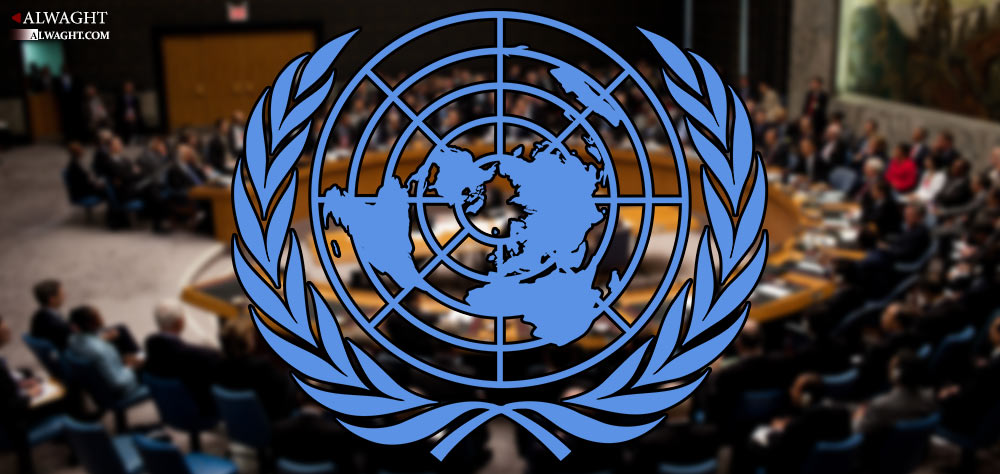Alwaght- The US President Donald Trump will host a September 18 summit of the world leaders who would come together to discuss reforms to the structure of the United Nations.
The American leader, an outspoken critic of the world body, will push the invitees attending the meeting at the US headquarters in New York to garner adequate backing that will allow him press for overhauling the UN. The gathering will be held a day before the president’s first General Assembly address.
The political declaration of the UN noted that countries will be invited to attend Trump’s meeting if they sign on to a US-drafted 10-point political declaration backing efforts by the UN Secretary General Antonio Guterres “to initiate effective and meaningful reforms,” the Reuters news agency reported on September 1.
The US president is critical of the annual American share of the UN budget, calling it “unfair.” The reform bid by him is in fact a push to slash the funding of the world body which he once described as a “club for people to get together, talk, and have a good time.”
The US is reportedly the UN's biggest funder, providing 22 percent of its $5.4 billion biennial main budget as well as 28.5 percent of its $7.3 billion budget allocated for peace-keeping missions around the world. The US is also engaged in efforts to reform the missions of the UN-supervised peace-keepers in a bid to cut the expenses.
Trump, Guterres, and the US envoy to the UN Nikki Haley are planned to address the September 18 event, sources familiar with the schedule told the Reuters.
Ethiopia, which is president of the 15-member Security Council for September, said on Friday it would hold a high-level council meeting on peacekeeping reform on 20 September that will be chaired by Ethiopian Prime Minister Hailemariam Desalegn.
The meeting is scheduled for holding at the American leader’s suggestion while it has so far failed to approve overhauls proposed by various members due to differences erupting between the world's big powers. Many countries are now critical of the structure of the UN and also the Security Council but have failed to turn the tide as the permanent members of the UNSC– US, China, Britain, Russia, and France– have so far rejected various amendatory proposals.
The critics of the UN enumerate an array of challenges the world body is facing and call for the reform to address them:
- Civil wars around the world
- Unilateral measures of some of global powers
- Imbalanced socio-economic development of the world countries that causes deeply-polarized global order
- Population explosion
- Environmental challenges
- Blatant violation of the human rights especially by the pretending powers
- Creeping of terrorism around the globe
- Expansion of various diseases like AIDS as well as drugs smuggling
Many analysts argue that the UN credibility highly relies on realization of a set of preconditions that help the international organ to do its duties perfectly:
- Avoiding discriminatory treatment of different countries
- Stopping the double-standard policy in decision making
- Insisting on implementing the laws
- Avoiding secrecy in decision making by regarding democratic principles
- And respecting the current UN-enacted laws and steering clear of unilateralism
The criticism against the UN structure, especially against the highly-questioned mechanism of the UNSC as the most powerful international body, is not restricted to the present time, rather it has a life as long as the life of the UNSC itself. But the recent years saw a surge of censure.
Many global countries disapprove of the current form of the UNSC. Many analysts argue that except for the permanent members that have the veto right and other specific powers, other countries see the structure of the UNSC as totally against the principles of justice based on which the world body was built. A commission that in past few years was tasked with studying ways to usher in reforming of the UNSC has yet to make any progress due to the conspicuously different viewpoints of the permanent members.
The share of the underdeveloped or less powerful countries in the UN decision making processes is one of the issues that has to be considered in any steps to review the UN body. The UN replaced the League of Nations following the Second World War. Its structure was customized to address the goals of the victorious powers, something made them have a lion share in its decision-making mechanism.
The veto right for the five powers is another issue subjected to criticism by the questioning parties that seek reform. This right directly affects the way decisions made in the UNSC. Many countries argue that it is in fact an unfair jurisdiction appropriated by the Second World War's triumphant parties for themselves in the early stages of the UN establishment. This authority is illogical and even noticeably contrary to some of the UN principles, with many members expressing their objection to it.
Another point of focus is the General Assembly that certainly stands as one of the most important and comprehensive wings of the UN and needs strengthening in all areas of its functions. Bolstering role of the General Assembly is feasible only if crucial international matters like nuclear disarmament, economic development, human rights protection, and peace-keeping missions are raised in its meetings and proper ways of implementation of bills are predicted.
But can other international actors, aside from the five powers, reform the UN’s widely-blasted makeup? The answer perhaps vividly lies in the record of attempts made over time to make difference. The powers so far vetoed any moves to alter the current establishment of the UN system, frustrating the pro-change parties who have been working for modifications to the 70-year-old body.
Despite that, reformatory steps have been taken at least to restrict nuclear weapons. Other acts include moves that are expected to give more effective role to the independent actors. The early July treaty to ban nuclear bombs, endorsed by 122 countries after months of talks in the face of strong opposition from nuclear-armed states and their allies, was praised as a global cohesion against the US, the country with biggest nuclear arsenal.
More reforms means more power entrusted to the independent players to use their bargaining chips and draw convergence in areas where they can serve the interests of the world’s majority. The reform steps can start with negotiation of such issues as environment, energy, the brewing water crisis, and economic challenges. The result may be small changes but they can prepare the ground for big ones.



























